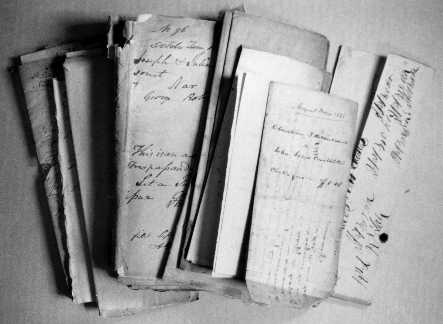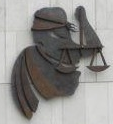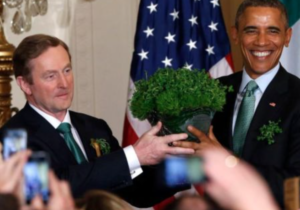Open justice and access to court documents – a (lightly updated) footnote
 Article 34.1 of the Constitution provides that “Justice … shall be administered in public“. By way of footnote to my earlier post on Open justice and access to court documents comes the decision of Hogan J in Allied Irish Bank plc v Treacy (No 2) [2013] IEHC 242 (21 March 2013). The applicant had been mentioned in affidavits filed by the defendant in the main action, and took this motion to have access to those affidavits. Hogan J held in his favour, and emphasised that he was entitled to the affidavits as of right and not necessarily on foot of an application to court:
Article 34.1 of the Constitution provides that “Justice … shall be administered in public“. By way of footnote to my earlier post on Open justice and access to court documents comes the decision of Hogan J in Allied Irish Bank plc v Treacy (No 2) [2013] IEHC 242 (21 March 2013). The applicant had been mentioned in affidavits filed by the defendant in the main action, and took this motion to have access to those affidavits. Hogan J held in his favour, and emphasised that he was entitled to the affidavits as of right and not necessarily on foot of an application to court:
…[21] In any event, I do not consider that the Court’s permission was required for this purpose. These allegations were ventilated in civil proceedings in open court and, as I have already found, the affidavits were effectively openly read into the record of the court. Given that these proceedings were in open court pursuant to the requirements of Article 34.1 of the Constitution, it follows that any cloak of confidentiality or protection from non-disclosure vanished at point. …
[22] The open administration of justice is, of course, a vital safeguard in any free and democratic society.



 Earlier this evening, I did an interview on
Earlier this evening, I did an interview on 
 Last week, on 17 March, as the world celebrated Ireland’s national day in honour of St Patrick, the Taoiseach (the Irish Prime Minister) made the annual presentation of a bowl of shamrock to the President of the United States (pictured left). I seem to remember being taught in school that the reason the shamrock is one of Ireland’s unofficial national symbols is because St Patrick explained the Christian doctrine of the Holy Trinity by reference to
Last week, on 17 March, as the world celebrated Ireland’s national day in honour of St Patrick, the Taoiseach (the Irish Prime Minister) made the annual presentation of a bowl of shamrock to the President of the United States (pictured left). I seem to remember being taught in school that the reason the shamrock is one of Ireland’s unofficial national symbols is because St Patrick explained the Christian doctrine of the Holy Trinity by reference to